- Home
- Helen Forrester
Mourning Doves Page 3
Mourning Doves Read online
Page 3
A very rusty range had been built into one wall. With a long-handled water pump at one end, a sandstone sink was set below a filthy casement window positioned high in the house’s end wall. Through the window Celia caught a glimpse of the straggling tops of hedges which she supposed marked the edge of the property.
Cautiously she pressed down the pump handle. It gave a fearsome squeak, but no water came out.
Her mother stared at it, and then said heavily, ‘It has to be primed and it’s probably rusted inside.’ After a pause while she dabbed at her reddened nose, she added, ‘There’s a well at the bottom of the garden.’
Celia was appalled. The kitchen was awful, filthy beyond anything she had ever seen before. How on earth could one ever get such a neglected house clean – without a couple of skilled charwomen? But Cousin Albert had said no servants.
She realised with real shock that, if they did come to live in it, she herself would have to clean it. Her mother would not dream of doing an unpleasant job while she had a daughter to push it on to, and Celia had no idea even how to start.
She swallowed, and opened another door. ‘This must be the pantry,’ she said. ‘Phew! How it smells!’
Because there was a sudden scuffle of tiny feet in its confined space, she hastily slammed the door shut again. ‘Ugh!’
‘Mice!’ her mother burst out. ‘Oh, Celia!’ She hastily gathered her skirts up to her knees, as if expecting an immediate invasion of her petticoats by the tiny intruders. Tears ran down her face.
‘It’s all right, Mother. It’s all right! I don’t think any came out.’ Celia turned back to the hallway, and suggested heavily, ‘We’d better have a look upstairs.’
There were three small bedrooms, and, in addition, a very tiny room at the front, over the hallway, which Louise said, with an effort, had been her elder sister’s bedroom when they were children. It was in the latter that the window had been broken. Rain had got in and damaged the plaster. Under their feet brown linoleum squelched as they trod on it, indicating that there was water under it.
‘Pooh!’ exclaimed Celia. ‘This room reeks of damp.’
Her mother blew her nose, and said very wearily, ‘The floorboards have probably rotted.’
Celia nodded. She wondered, with a shiver, if they would ever have enough money, never mind enough strength, to put this tiny house into some sort of order. Cousin Albert must believe that it was possible, she decided.
In fact, Albert Gilmore had not thought the matter through very well. His main goal was to avoid having to take the two bereaved women into his own home in Nottingham, where he dwelled very happily with an obliging manservant. He did not want them there even temporarily – they might be hard to dislodge.
He hoped that they would agree to settle in the cottage, or, alternatively, go to live with Louise’s elder, married daughter, Edna, and her husband, Paul Fellowes, something he had not yet suggested to either lady – he felt that the latter idea must come from Paul and Edna, and was, in his opinion, a decision of last resort. In the meantime, he had pressed on Louise the idea of the cottage as a suitable home.
Paul was an electrical engineer, a director in his family firm which had grown hugely during the war, because of the international reputation of its engineers and their innovative approach to new problems. He had just completed managing a lucrative seven-year contract for the wiring of an entire city in Brazil. He and Edna would, according to Louise, sail for home this month. Once he was resettled in England, considered Cousin Albert, Paul Fellowes would certainly be able to afford to take in a couple of women, who would probably make themselves useful in his house, as such women always did.
On the other hand, he pondered, if they would agree to live in the cottage and were very careful, they should be able to manage on the rents from Louise’s six houses in Birkenhead. The rents, in addition to the annuity which he proposed to buy for them from the proceeds of the sale of the West Derby house, should be enough for two women to live on.
He knew from his talks with Mr Barnett and with Timothy’s chief clerk that there would, almost certainly, be nothing left of Timothy’s estate. The man owed money everywhere, probably because much of his basic income had come from investment in railways, which, now that the war was over, were not doing very well. Had he lived, he might have been able to pull through a difficult period, but now there was no hope. His few assets must be liquidated to meet his debts.
He trusted that Paul Fellowes would, when he returned to England, help him with the paperwork necessary to wind everything up. Paul should soon receive his letter, sent to Salvador, Brazil, informing him of his father-in-law’s death and asking him to break the news to his wife.
It was possible that the couple had already sailed for England before the letter’s arrival. In that case they would receive the news from a telegram, which he had dispatched to Paul’s father at their company head office in Southampton. Edna’s last letter to her mother had mentioned that they expected to dock in Southampton and spend a few days with Paul’s parents before coming north to visit her own parents.
As Louise and Celia struggled round the overgrown garden of the cottage by the sand dunes, Louise mentioned how relieved she would be to see Paul and Edna.
Celia agreed. She had almost forgotten what the couple looked like. She had never had a great deal to do with her elder sister, and she had met Paul only three times, so she was not particularly hopeful of being comforted. Their presence would, however, add a sense of stability to Louise in her shattered state, for which she would be grateful.
If Paul returned quickly enough, thought Celia, he would, at least, be someone to consult about the cottage – if he had any time; she had always understood from her father that businessmen never did have much time to spare for the affairs of women.
Standing in the cottage garden after the stuffiness of the house, it was a relief to Celia to breathe clean, salt-laden air, and, despite its total neglect, there was a healthy smell of damp earth and growing things.
At the bottom of the garden, they inspected an earth lavatory.
‘It’s utterly disgusting!’ Celia exclaimed. ‘Did you really use it?’
‘Yes,’ Louise admitted. ‘It wasn’t something we looked forward to. It was your father’s main objection to continuing to come here for holidays.’ She began to whimper, as she recalled with anguish the handsome water closet which Timothy had had installed in their West Derby home.
‘Perhaps we could get a proper bathroom put in here,’ Celia suggested doubtfully, as she shut the door firmly on the obnoxious little hut. Though she had long since learned that, to survive, she must bow her head and do whatever her parents decided, even her broken spirit had, on inspecting such primitive sanitary arrangements, begun to feel a sense of revolt.
After several days of being confined indoors, the fresh air was reviving Louise, and she looked around her, and sighed. She replied quite coherently, ‘I don’t think we could put in a water closet, without piped water and drains.’ Then she exclaimed with something of her normal impatience, ‘What a mess! I can’t imagine what kind of a tenant must’ve been living here. Mr Billings must have been very careless about his selection of one.’
Celia contemplated the jungle of weeds and sprawling bushes round her. ‘Did he pay the rent? The tenant, I mean,’ she asked practically.
Her mother shrugged. ‘I don’t know. Your father took care of these things.’
Celia turned to stare at the back of the house. The roof looked all right, no slate tiles missing and the chimneys were all intact, as far as she could judge. Her eyes followed the ridge of the roof, and she remembered suddenly that there was another house attached to theirs.
‘Do you own the house next door, Mother? I can see that the other side of the hedge has been trimmed, and there are curtains in the bedroom windows – and smoke is coming from the chimney. Someone must live there.’
Her mother looked up. ‘No, I don’t own it. My father bought
this house simply as a summer cottage, rather than as an investment, and when he died he left it to your Aunt Felicity.’
Anxious to encourage her mother to take an interest in anything, Celia asked, ‘Who does own it?’
‘A Mr and Mrs Lytham bought the other side. I used to play with their children.’ Louise’s expression softened, and she added wistfully, ‘We had some lovely times, playing in the sand dunes and paddling in the sea. I wonder what happened to them?’
Celia forced a smile. ‘How nice that must have been.’ Then she looked at her brooch watch. ‘Perhaps we had better lock up, Mother, and go to have a talk with Mr Billings. He could advise us about repairs.’
Her mother nodded and they retraced their steps to the house, ruefully brushing down their long skirts. Even Celia’s ankle-length, tailored skirt had caught in the undergrowth and had burrs and bits of leaves and seeds clinging to it.
Celia locked the back door and they walked slowly and dismally through the house, leaving muddy tracks behind them.
While Celia turned to secure the inner front door, Louise proceeded slowly down the front steps. She suddenly let out a frightened little cry, ‘Oh!’
Celia spun round.
Standing in the middle of the red-tiled path was a tall thin man. As the women stared at him, he raised his cap and bowed. ‘Good afternoon,’ he greeted them politely.
Chapter Three
Confronted by a man, both women were suddenly acutely aware of how isolated the cottage was.
Walking down the lane to it, they had passed only one other cottage, a squat little dwelling with a thatched roof. It had, Louise told Celia, been lived in for centuries by a family of fishermen. Now, they stared uneasily at someone who seemed to have sprung from nowhere.
‘Good afternoon,’ responded Celia nervously, while her mother stiffened, as she catalogued the man as no gentleman, despite his courteous greeting. The lanky man’s grey hair was roughly cut and framed a lined, weather-beaten face. He wore a striped union shirt without a collar; a red and white cotton handkerchief was tied round his neck. His wrinkled, old-fashioned moleskin trousers, held up by a worn leather belt, were stained with dried mud.
As he looked down at her, Louise’s silence did not seem to disconcert him in the least. His faded blue eyes held the hint of a smile, as he said, ‘You must be Mrs Gilmore. The gentleman as was here to take a quick look at the cottage for you said as you would be coming. He come out late Tuesday. Nearly dark, it was.’
A quiet rage against Cousin Albert rose in Louise, blotting out all sense of fear or grief. So, during his stay with her, he had not spent all his time in Timothy’s office checking over with the clerk just exactly what the financial situation was; he had also been out here, planning to condemn her to live in this awful place. He knew precisely what it was like.
With sudden understanding she realised how she had been manipulated. Albert and Mr Barnett had made her sign away her present home.
It was so unfair. They should have explained to her what she was about to do. Consulted her. The fact that the outcome would probably have been the same did not make any difference. She had not been asked what she felt about moving out here.
Could she not have sold this horrible cottage and bought another tiny house in a decent, civilised Liverpool street?
No time had been allowed her to recover from her bereavement, she raged; there had been no understanding that she was distraught with grief.
She was healthily furious, not only with Albert and Mr Barnett, but also with Timothy.
Timothy might have had enough sense to tell her that she owned their home, when he had originally transferred it.
Unless he had not trusted her? What a dreadful thought!
That was it. He must have felt, like Cousin Albert, that she was not capable of dealing with the ownership of such a valuable property; in transferring the ownership to her he must simply have been ensuring that no creditor of his could ever seize his home.
Men were like that, she felt with sudden, bitter understanding of the helplessness imposed on women.
She drew herself up to her full height, and replied frigidly to the stranger. ‘Yes, I am Mrs Timothy Gilmore.’
‘And the young lady?’
‘My daughter, Miss Celia Gilmore.’
The man smiled down at the tiny younger woman. Framed by untidy blonde hair, her face had the whiteness of skin never exposed to sunlight. Her loose, black-belted jacket and full skirt were relieved only by a white blouse. A tiny gold cross and chain glittered on a blue-white throat. A wide-brimmed black hat, worn squarely on her head, did nothing to improve her looks. A proper little mouse, her mam’s companion-help, he judged her, but probably amiable enough to be a good neighbour. ‘Nice to know yez, luv,’ he said warmly.
Celia smiled nervously in return. She sensed that the old man approved of her. It felt nice; she rarely got approval from anybody. As her mother’s patient shadow, she was usually barely noticed.
Their visitor pointed an arthritic finger at the house next door, and, as if taking it for granted that the ladies would be moving into the cottage they had just inspected, he said, ‘I’m your neighbour. Me name’s Eddie Fairbanks. Was head gardener to the earl till he sold the family home to be a nursing home for wounded soldiers. Proper kind to me, he was. Served him forty years I did, ever since I were a lad of ten, so I was close to retirement, anyway. He give me the cottage rent free for me lifetime and me wife’s lifetime – ’cos, he said, I designed one of the best rose gardens in the north for him, and he loved roses. He hoped the servicemen would enjoy the garden. He lives in London now.’ He paused to take a breath, while the two women stared at him. Since they did not say anything, he went on, ‘My Alice passed away six years ago, so I manage by meself.’ He paused again, as if expecting some response from Louise, but when there was none, he asked, ‘Would you like a cuppa tea? The kettle’s already hot. That house must’ve been cold when you went in – with the wind, and all.’
‘No, thank you,’ Louise replied stiffly. Tea with a gardener? What was she coming to?
Celia, however, caught her arm and, smiling unexpectedly prettily at the old man, she said, ‘Mother! It would be so nice to get acquainted with Mr Fairbanks. He might be able to tell us more than Mr Billings would.’
‘Ha! Old Billings?’ interjected Mr Fairbanks. ‘In Birkenhead, eh? He hasn’t taken much care of the place for you, has he?’
Celia replied ruefully, ‘No, not by the look of it.’ She turned her head to smile up at her mother. ‘A cup of tea would be lovely, Mother.’ She gave Louise’s arm a warning little tug. In their desperate situation, a male neighbour could be very helpful.
Louise was still inwardly steaming with rage, but out of courtesy she reluctantly agreed. She said to Mr Fairbanks, ‘Very well. It is very kind of you.’
She made herself smile at the man, and he said, obviously pleased, ‘That’s better, Ma’am. This way, if you please.’
He led them down the path and round the wild, ragged front hedge. At the halfway mark, it suddenly became a neatly trimmed privet, and he led them into a front garden boasting a few daffodils and other small spring blooms. Near the house wall, sheltered from the cold wind, a blaze of red tulips stood tall and straight as an honour guard. The front window was neatly draped with lace curtains, and the front door stood open, giving a glimpse of a flowered stair carpet.
They entered through a lobby similar to the other one next door, though it lacked the stained-glass window in the inner door and the tiles were covered by a large doormat.
They carefully wiped their feet as they went in, and looked down the passageway with some curiosity.
It had the same brown paint with cream upperworks as the house they had just been in. It was, however, spotlessly clean, and the hall runner was thick cream wool with a lively Turkish pattern in dark reds and greens. Celia looked at it and hesitated to step on it.
‘My shoes must still be muddy from the gar
den,’ she said doubtfully to the old man.
‘Don’t worry, luv. The carpet cleans up fairly easy.’ He smiled at her and at her mother behind her, and gestured towards the colourful stair carpet. ‘Alice and me, we hooked all the carpets in the house. Pure wool, they are. They sponge clean something wonderful.’
Murmuring polite amazement at such industry, the ladies were ushered into the back room, where a good coal fire glowed. ‘Come in, come in and warm yourselves.’
He eased a rather bewildered Louise into a battered rocking chair, and told Celia to take the chair opposite, which was a low nursing chair with a padded seat and back, its velveteen worn with age.
As she sat down, she wondered how many babies Alice had fed while seated in the armless chair. She spread her skirt comfortably round her, and, a little sadly, thought how good it must feel to have a baby at the breast and be cosy with it by the fire. Then, as Mr Fairbanks hurried to get his best, flowered cups and saucers out of a corner cupboard and set them on a table in the centre of the little room, she almost blushed at her wickedness at harbouring such an idea.
Her duty was to her mother; she had been taught that in childhood, and, anyway, at aged twenty-four she was on the shelf – too old to think of marriage and babies.
Edna had been the pretty one, who had been groomed for marriage and had gone triumphantly to the altar with Paul Fellowes, a good solid match. Her father had, however, been worried when a besotted Edna had insisted on following her husband out to Brazil, though she was pregnant with their first child. Her daughter had survived being born in a hot climate, only to die of dysentery at the age of two. There had been no other children, and Celia often wondered why. Her friend, Phyllis Woodcock, had told her ruefully that babies arrived every year.
Edna was lucky that Paul was still alive. Had it not been for the contract in Brazil, he would surely have volunteered for the army at the beginning of the war, and it would have been remarkable if he had managed to survive until the conflict ended. She wondered if he had felt any regret at not being able to come home and fight – or had he thankfully made the business contract with Brazil, an allied country, an excuse not to have to sacrifice himself for king and country?

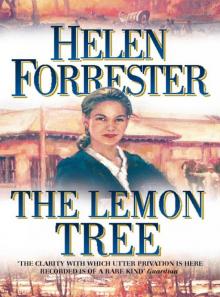 The Lemon Tree
The Lemon Tree Thursday's Child
Thursday's Child Yes, Mama
Yes, Mama Madame Barbara
Madame Barbara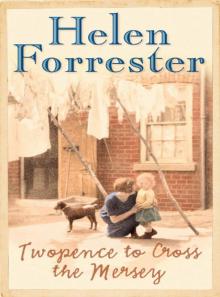 Twopence to Cross the Mersey
Twopence to Cross the Mersey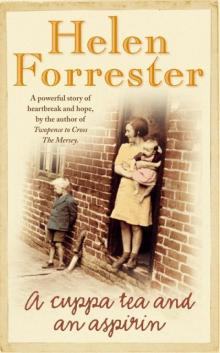 A Cuppa Tea and an Aspirin
A Cuppa Tea and an Aspirin The Moneylenders of Shahpur
The Moneylenders of Shahpur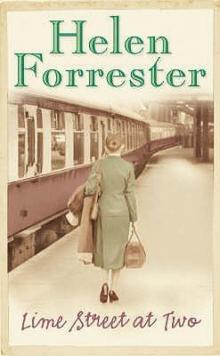 Lime Street at Two
Lime Street at Two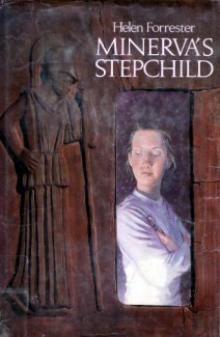 Minerva's Stepchild
Minerva's Stepchild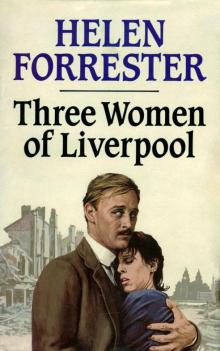 Three Women of Liverpool
Three Women of Liverpool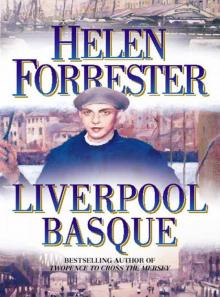 The Liverpool Basque
The Liverpool Basque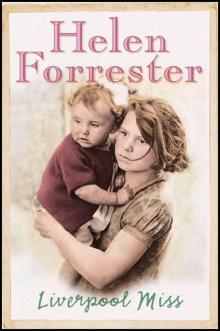 Liverpool Miss
Liverpool Miss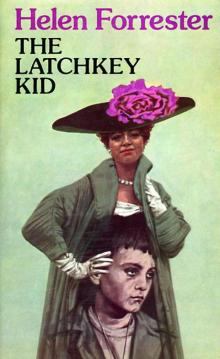 The Latchkey Kid
The Latchkey Kid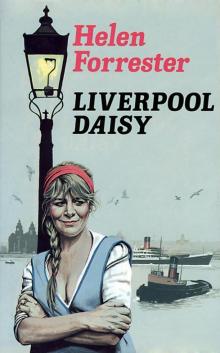 Liverpool Daisy
Liverpool Daisy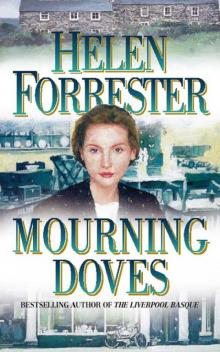 Mourning Doves
Mourning Doves